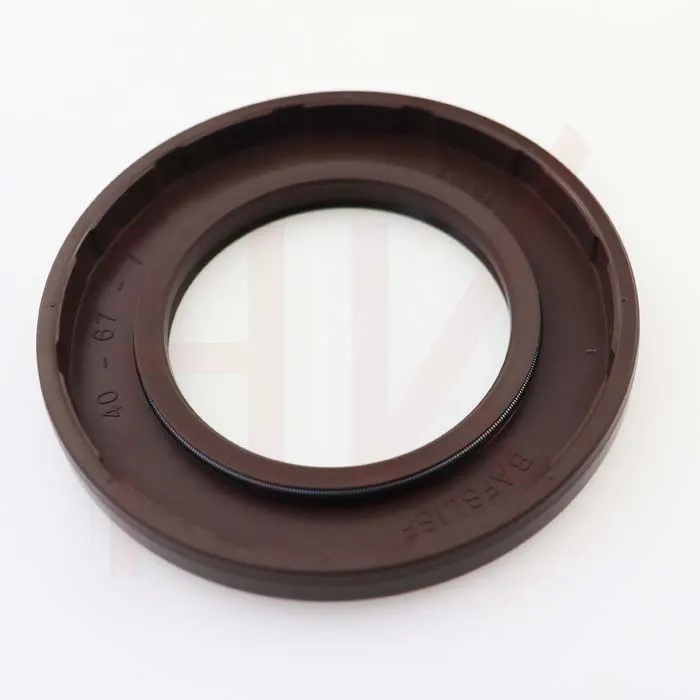ഒക്ട് . 06, 2024 02:54 Back to list
oil seal for pump
Understanding Oil Seals for Pumps
Oil seals play a crucial role in the functionality and longevity of pumps, which are essential components in various industries ranging from water treatment to oil and gas. An oil seal, also known as a lip seal or rotary seal, is a device used to retain lubrication and prevent the leakage of oil or other fluids. In pumps, these seals are indispensable as they safeguard against oil loss, contamination, and environmental hazards.
Functionality of Oil Seals
The primary function of an oil seal in a pump is to prevent the escape of oil while also keeping contaminants out. This is particularly important in pump applications where the lubricant used is under pressure. The seal exerts a radial force against the rotating shaft, creating a barrier that minimizes the passage of fluid. The design of oil seals often includes a flexible lip that conforms to the shaft surface, ensuring a tight fit that enhances sealing performance.
Another critical aspect of oil seals is their ability to withstand various operating conditions. Pumps can experience extreme temperatures, pressures, and chemical exposures, depending on their application. Oil seals are engineered to resist these conditions, using materials such as nitrile, fluorocarbon, and silicone that offer excellent durability and flexibility. Selecting the right oil seal material is vital as it directly impacts the pump's efficiency and lifespan.
oil seal for pump

Importance in Pump Maintenance
Regular maintenance of oil seals is essential to ensure the optimal performance of pumps. Over time, seals can wear out due to factors like friction, heat, and contamination. A damaged seal can lead to oil leaks, which not only diminishes the efficiency of the pump but can also result in costly environmental clean-up and equipment repair.
Routine inspections should focus on identifying signs of seal wear or failure, such as unusual noises, leakage, or changes in pressure. If an oil seal is found to be faulty, it is advisable to replace it promptly to prevent further damage to the pump. Additionally, utilizing high-quality oil seals and adhering to the manufacturer’s specifications can significantly improve operational reliability.
Conclusion
In conclusion, oil seals are an integral component of pump systems. Their ability to maintain lubrication and prevent leakage significantly contributes to the overall effectiveness and reliability of pumps in various industrial applications. Understanding the function, importance, and maintenance of oil seals is crucial for any business that relies on pump technology. By investing in quality seals and following proper maintenance protocols, companies can ensure their pumps operate efficiently, reducing downtime and operational costs. Whether in a manufacturing plant, sewage treatment facility, or oil refinery, the role of oil seals in pumps cannot be overstated—they are pivotal in achieving optimal performance and reliability.
-
Unlocking the Potential of Hydraulic Systems with Essential Sealing Solutions
NewsAug.06,2025
-
Unleash the Power of Your Hydraulic Systems with Our Premium Seal Kits
NewsAug.06,2025
-
Specialized Hydraulic Seal Kits for Breakers, Pistons, and Presses
NewsAug.06,2025
-
Revitalize Hydraulic Systems with Premium Repair and Seal Kits
NewsAug.06,2025
-
Fortify Your Cylinders with Premium Sealing Solutions
NewsAug.06,2025
-
Elevate Hydraulic System Reliability with Specialized Seal Kits
NewsAug.06,2025
-
TCN Oil Seal Metal Ring Reinforcement for Heavy Machinery
NewsJul.25,2025
Products categories
















